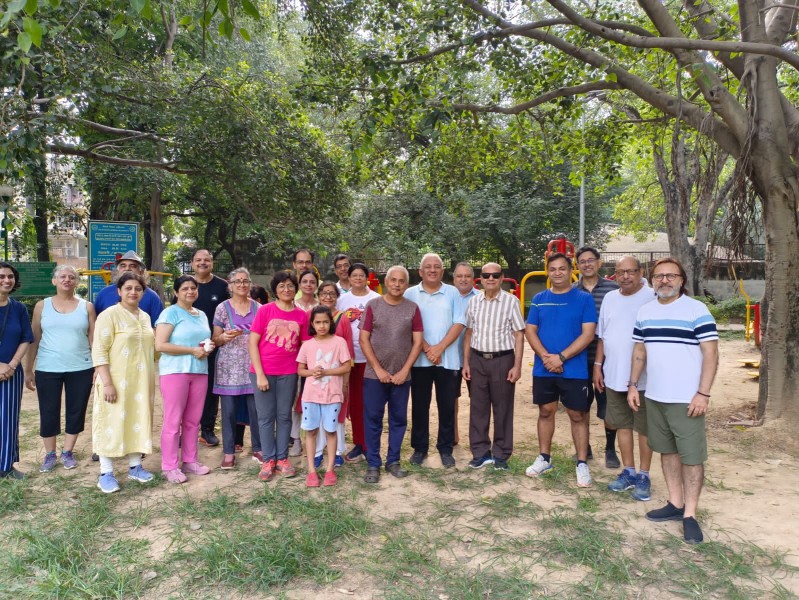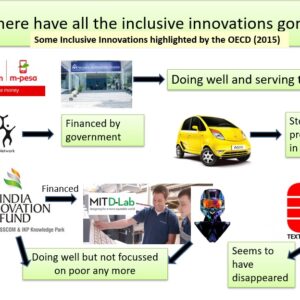India can be proud of its great scientific achievements, many of them realised by scientists in the public sector – like being the first country to send a lunar-lander and lunar-rover Chandrayaan-3 to the South pole of the moon, at a cost less than one-third of Hollywood films about space like Interstellar!
With such wonderful talent and technological and innovative prowess – why is India still so dirty? This is because mobilising community engagement or changing social norms of indiscriminate littering is obviously a far greater challenge than launching space vehicles or genetically modifying whatever or building a crack AI programme or making driverless cars. These technological feats are achieved by dedicated teams with good leaders driven by a collective vision. Keeping a country clean is another matter. It requires community engagement and cooperation from citizens – one of India’s greatest challenges. And the one that holds the key to its sustainability in the decades to come. I share my experience as a data point.
Recently I was in Delhi to recover from a health setback. As I was led out of the airport, I saw a well-dressed grandfather throw the chocolate wrapper on the ground after offering the chocolate to his grandson. I had to visit doctors every week and on most rides, we would see on the beautiful roads of Delhi – people from big cars and motorcycles throwing out bags of garbage to the side.
Then as I got better, I began taking walks in the wonderful district park of Vasant Kunj Sector A Pocket C. In the morning, there were no mosquitoes, the trees were a wonderful green, mynas, sparrows, crows, woodpeckers and parrots or parakeets, dogs and monkeys kept the walkers and exercisers in the park good company. It was a wonderful way to start the day – and then invariably I noticed the trash on the ground. There wasn’t a lot but it was there everywhere and more near the borders.
I didn’t know what to do. After all I was just a visitor in a locality full of educated professionals. Then one day, I saw a young woman picking up the trash in the park.
“I do this regularly”, she explained. So, how come she was so engaged? “I am a Buddhist and I do this to practice the philosophy and do my little bit for the world among other things.”
I got excited, “Do you think we can have an event and have everyone pick up trash like you?” I asked her.
She replied, “why not?” and put me in touch with the Resident Welfare Association Vice-President Mr.prateek pathak, Transformation Coach & Director- Training, who in turn said he had mobilised the community to cleaning a few times in the past. He and Mr. Pant, the President of the Resident Welfare Association were very open and enthusiastic to the idea. Even though August 15th India’s Independence Day was just round the corner, we decided to give it a go!
See the video to know what happened! The link is given at the end.
As you will note, the will to engage for the community is there – very much there in Vasant Kunj – just like elsewhere in India! The Resident Welfare Association had also done a wonderful job of motivating everyone, providing bags to pick up the trash and wonderful chai and pakoras as well!
However, by August 25th the park had returned to its original state of trashiness.
So, the big challenge is not only to mobilise community engagement, but to sustain it. We need regular trash walks so that they become the norm. People are ready – but there has to be leadership that mobilises them. In other words, we need civic organisations like resident welfare associations to integrate ‘trash walks’ as a regular feature of community life. Only then will ‘social learning’ be provided and promoted – making people change their attitudes and behaviour by observing and imitating others! Now how can we make non-littering and going on trash walks the new ‘cool behaviour’ to be emulated?
I don’t have the answer, but I am experimenting and I know that a lot of other NGOs and policy makers and do-gooders are also trying. Some have succeeded – but not all and we all have to succeed – to make a world a cleaner and healthier place to live in. Video of trash walk: https://youtu.be/htOe_bHXzHs





